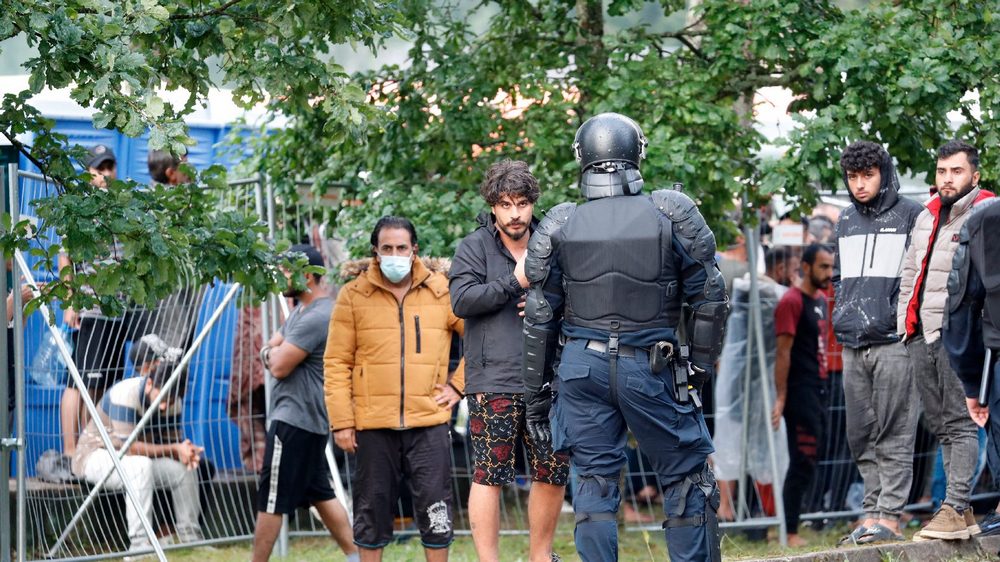The number of illegal border crossings into the European Union in the first seven months of 2021 exceeded 82 thousand, which according to preliminary calculations is 59 percent more than the data measured a year earlier, border violations increased especially in the Central Mediterranean region and the Western Balkan region, he said on Thursday. EU Border and Coast Guard Agency (Frontex).
In July, Frontex registered 17,300 illegal border crossings, 33 percent more than in the same month of the previous year. The number of border violations increased by around 3,000 compared to June. The organization's report summarizing the July migration data highlights that migration pressure is constantly increasing on the EU's eastern borders: in July, more than 3,000 illegal entries from Belarus were registered at the Lithuanian border, while the border protection authorities had to take action 180 times on the Polish border and 200 times on the Latvian border.
In the first seven months of this year, 96 percent more migrants tried to violate the border on the Central Mediterranean migration route than in the same period last year, while the number of illegal border crossers decreased by 32 percent on the route that also touches Spain in the Western Mediterranean.
Most of the illegal migrants were Tunisians and Bangladeshis, and 67 percent were Algerians. The report notes that the reason for such a high rate of border violators in Algeria may be the ongoing political and economic instability in the country, which is prompting more and more people to try to reach Europe.
The authorities detected 3,600 illegal border crossings on the Western Balkan route in July, 67 percent more than last July. The number of attempts to cross the border on this section increased by 90 percent this year, with a total of 22,600 people trying to cross into Europe. The majority of migrants came from Syria, Afghanistan and Morocco.
This year, the number of border violators from sub-Saharan countries, i.e. countries south of the Sahara, also increased: in the past 7 months, 7,350 border violations occurred along the West African route, 130 percent more than last year.
Migration pressure is also gradually increasing at the Hungarian border. More than 500 people smugglers have been caught in Hungary this year , compared to 327 last year.
The Baltic states would defend themselves with a fence
Lithuania is building a fence of more than five hundred kilometers along its border with Belarus. The Lithuanian parliament voted on Tuesday night that this is how the country defends itself against the drastically increased migration. The powers of the soldiers are also being expanded so that they can protect the border more effectively. Latvia introduced a state of emergency on the Latvian-Belarusian border on Tuesday due to the sudden increase in illegal immigration. Quick response special teams have been set up to help stop border violators.
According to the Lithuanian government, the physical barrier is necessary because more than four thousand migrants have already been caught this year.
" We will pass the law that will help us implement this project in one or two years. This will be a big fence. It is four meters tall. So it will be a solid physical barrier, " said Laurynas Kasciunas, chairman of the National Security and Defense Committee of the Lithuanian Parliament.
These measures were also created in Hungary to curb migration, and now the same thing is happening in the two mentioned countries.
" Nowadays, the Baltic states - similarly to Hungary - see strict border protection as the most effective method for stopping migrants, " said Zoltán Kiszelly , director of Századvég.
He emphasized that
nevertheless, if the European Union does not intervene, the crisis may deepen in the region.
" 30,000 people leave Afghanistan every day, and indeed, if the EU does not send a clear signal that you should not come here, stay in Afghanistan or some other safe place, then surely these people would leave, just as the Syrians did six years ago, so would the Afghans To Europe ," said Zoltán Kiszelly.
However, the European Commission instead decided on Wednesday to support Lithuania with around 37 million euros in the management of migration, so that local authorities can expand the capacity of migrant camps on the Lithuanian-Belarusian border.
Source: hirado.hu / MTI / 2022plusz
Cover photo: A riot police officer talks to one of the detained illegal immigrants at the tent camp set up at the Rudninkai training ground in Lithuania, south of Vilnius, on August 2, 2021. Since the beginning of the year, 3,800 illegal immigrants have been arrested at the Lithuanian-Belarusian border. Lithuania suspects Belarus of bringing in mostly Iraqi migrants on direct flights from Baghdad and Istanbul in order to illegally send them on to the territory of the European Union (photo: MTI/EPA/Toms Kalnins).












